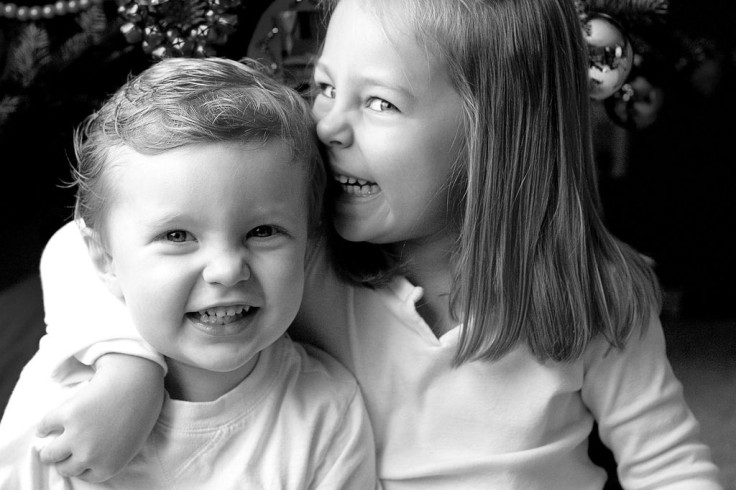Birth Order Among Siblings Has Little Effect On Personality Or IQ, Finds Largest Study To Date

You may think that you and your siblings are completely different, so different, in fact, that you would not know you’re related if you didn’t share some common DNA, but a new study suggests birth order isn’t the tell-all determinant of siblings’ characteristics that it is often thought to be. Employing new research techniques previous studies have failed to examine, a team of researchers from the University of Houston and the University of Illinois have found that birth order has such a small effect on personality and IQ, it is almost insignificant. Their findings have been published in the Journal of Research in Personality.
Problems with previous studies
In order to conduct this study, researchers looked at the personality and intelligence of 377,000 high school students, the largest pool to be studied for the outcomes of birth order. According to Rodica Damian, postdoctoral researcher and professor of psychology at Houston University, this larger sample size, along with the new research model used to compare personality and IQ created for a more accurate analysis of the effects of birth order. Damian states that previous studies on the topic suffered from gathering information from too small of a pool, while also employing the “within-family” design to study participants. This model often suggests that comparing children with their siblings, rather than comparing children from different families was the best point of analysis. When examining children from other families with one another, researchers can find any consistencies between a range of first-borns and a range of later-borns.
“[Within-family] studies often don’t measure the personality of each child individually,” Damian said in a recent press release. “They just ask one child — usually the oldest, ‘Are you more conscientious than your siblings?’”
For an ideal “within-family” study, says the team, researchers would have to examine a family over a long period of time, gathering data about personality and IQ from each child when they reached a specific age. This didn’t seem to be happening.
What the new study found
When conducting research outside of the “within-family” model, Damian, along with Brent Roberts, a psychology professor at the University of Illinois found that first-borns do have higher IQs than later-born children, but this IQ difference is only one point higher. In essence, the difference is pretty insignificant.
Researchers found a similar, minute difference in the case of personalities among siblings. For example, first-borns did tend to be more extroverted, agreeable, conscientious, and have less anxiety than their younger siblings, but the difference was “infinitesimally small,” amounting to a 0.02 correlation.
“In some cases, if a drug saves 10 out of 10,000 lives, for example, small effects can be profound,” Roberts said. “But in terms of personality traits and how you rate them, a 0.02 correlation doesn’t get you anything of note. You are not going to be able to see it with the naked eye. You’re not going to be able to sit two people down next to each other and see the differences between them. It’s not noticeable by anybody.”
Damian says that when conducting their study, the team made sure to control for factors that could taint data, taking into account a family’s economic status, the number of children and the relative age of siblings when the study was taking place. Researchers also examined a subset of participants for their study consisting of children who lived with families of two siblings, and two parents. The team was then able to look more in-depth at personality and IQ changes between first- and second-borns, or second- and third-borns. Overall, these findings reflected those of the larger study; there was a difference between the first- and second-born, as well as the second- and third-born, but it was “miniscule,” according to Roberts.
The take-away from all of this? “Birth order probably should not influence your parenting, because it’s not meaningfully related to your kid’s personality or IQ,” Damian said.
So yes, you and your younger/older sibling may seem like complete opposites, but you may have more in common than you care to admit.
Source: Damian R, Roberts B. The Associations of Birth Order with Personality and Intelligence in a Representative Sample of U.S. High School Students. Journal of Research in Personality. 2015.
Published by Medicaldaily.com



























